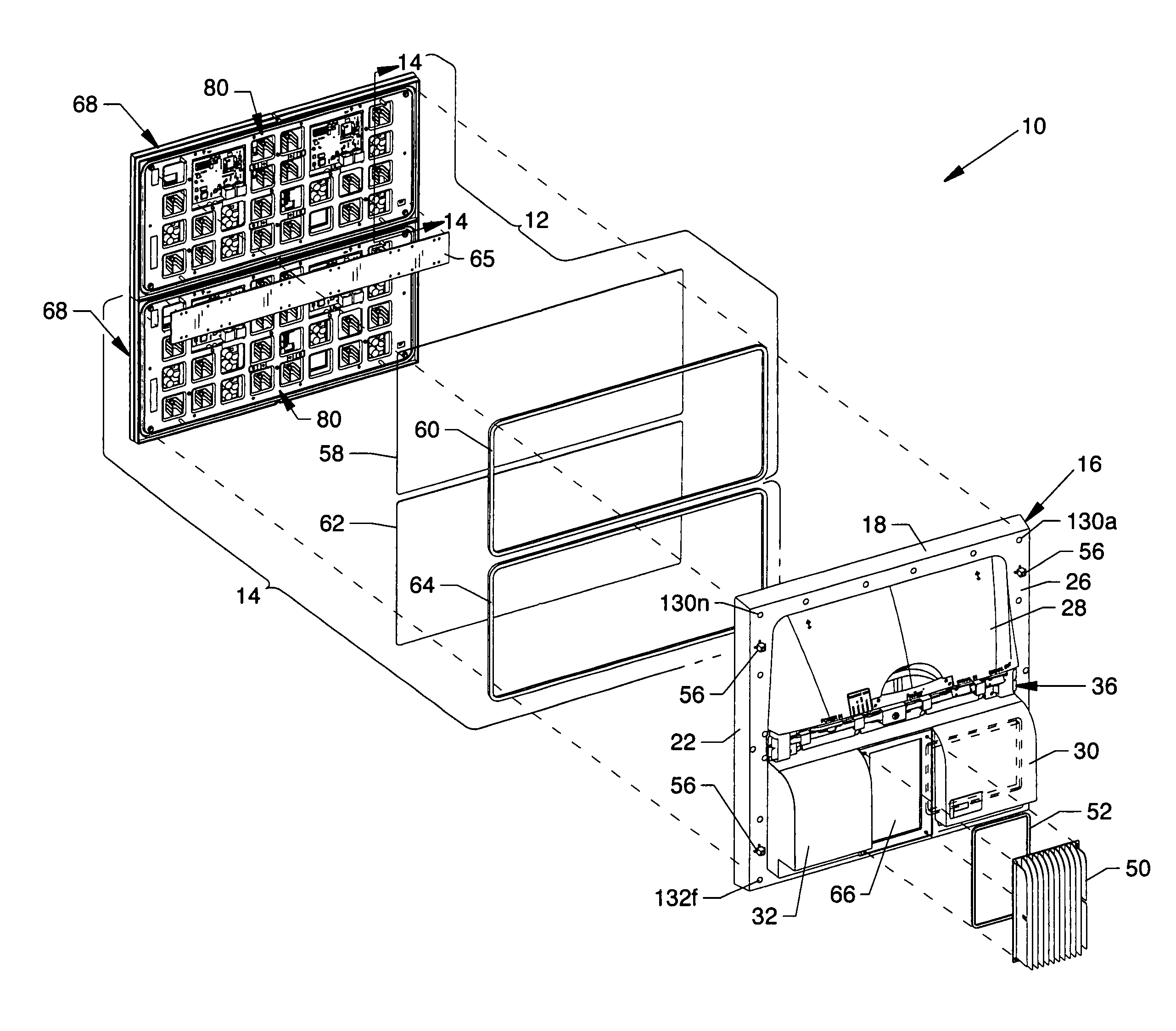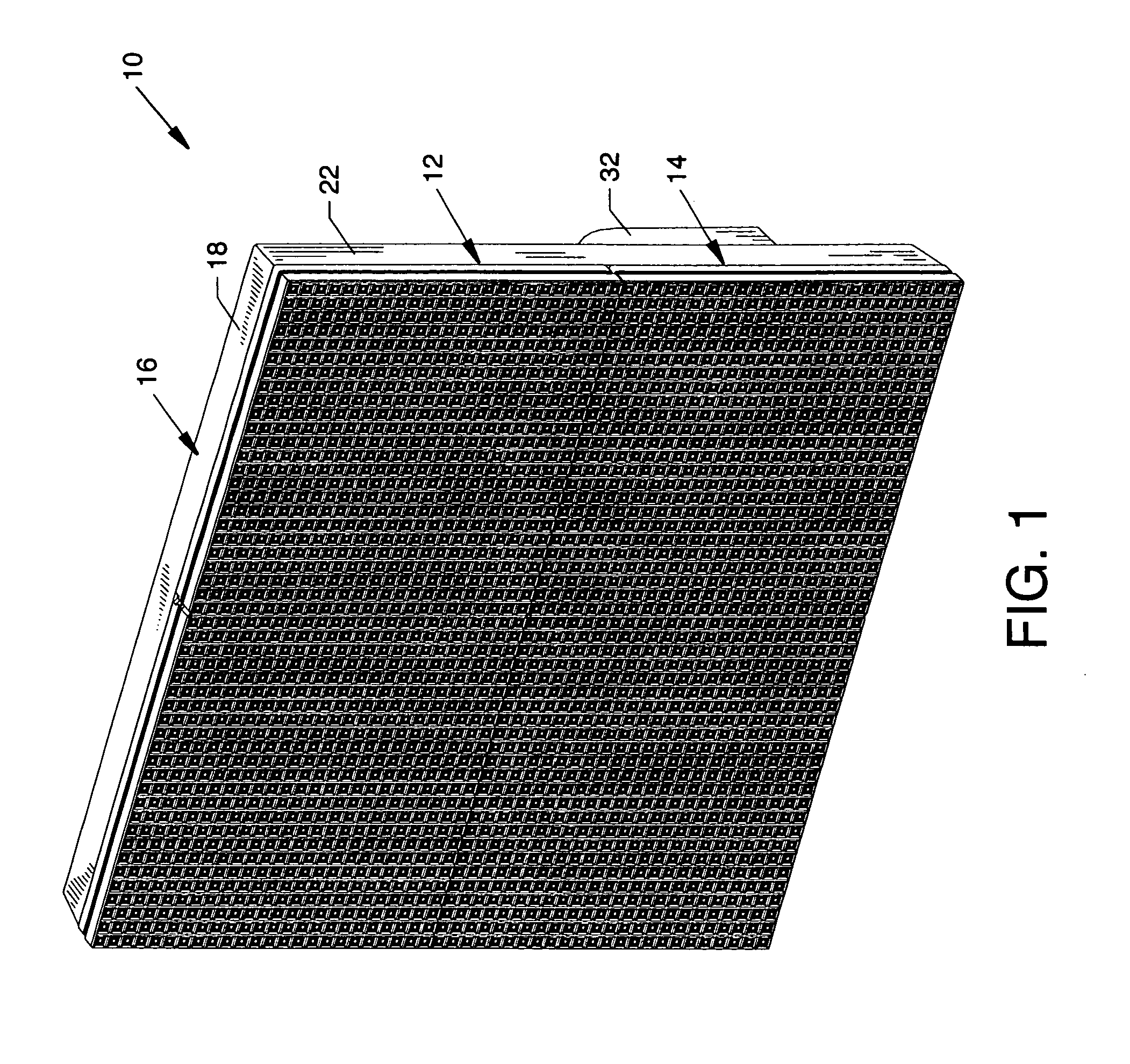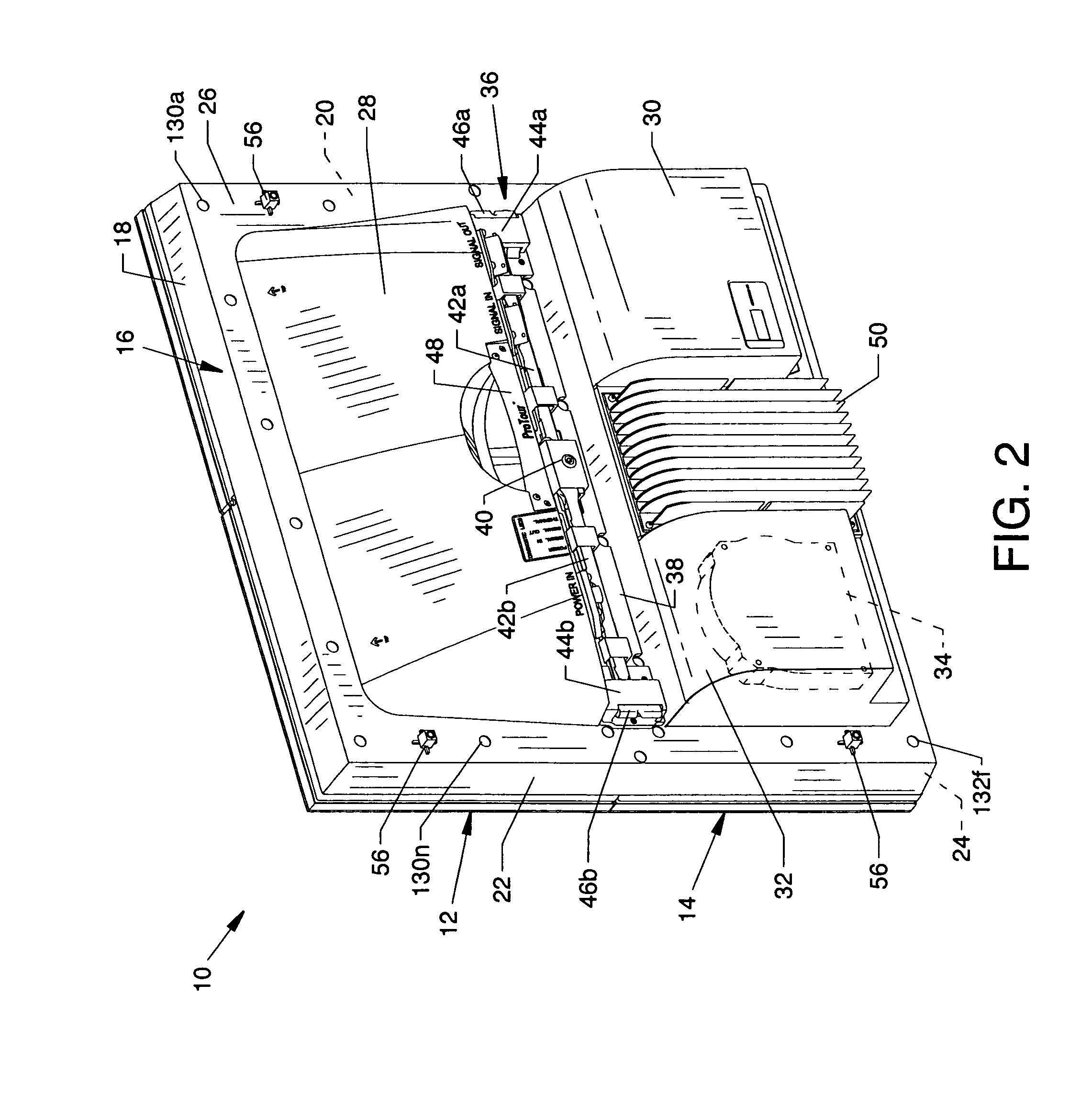LED display module
a technology of led display module and display module, which is applied in the direction of identification means, dismountable cabinets, cabinets, etc., can solve the problems of inconsistency in viewing and module uniformity, corrosion of the coating on the led circuit board, and no longer properly sealing the led display module, so as to improve the visibility of leds, improve weather and climatological sealing, and improve the suppression of emi (electromagnetic interference)
- Summary
- Abstract
- Description
- Claims
- Application Information
AI Technical Summary
Benefits of technology
Problems solved by technology
Method used
Image
Examples
Embodiment Construction
[0062]FIG. 1 is a front view of an LED (light emitting diode) display module 10, the present invention, and FIG. 2 is a rear view of the LED display module 10. Fully or partially visible components as shown in FIG. 1 and / or FIG. 2 include an upper LED display assembly 12, a lower LED display assembly 14, and a configured one-piece rear cover 16 made preferably from polycarbonate combined with EMI protective material. The rear cover 16 includes a top panel 18, opposed side panels 20 and 22, a bottom panel 24, a support panel 26 extending between the rear edges of the top panel 18, the opposed side panels 20 and 22, and the bottom panel 24, an enclosure panel 28 extending from the support panel 26, an air intake enclosure 30 extending from the support panel 26, and a centrifugal air pump enclosure 32 extending from the support panel 26 for housing an internally located centrifugal air pump 34. Also located at the rear of the support panel 26 is an LED display module latching system 36...
PUM
 Login to View More
Login to View More Abstract
Description
Claims
Application Information
 Login to View More
Login to View More - R&D
- Intellectual Property
- Life Sciences
- Materials
- Tech Scout
- Unparalleled Data Quality
- Higher Quality Content
- 60% Fewer Hallucinations
Browse by: Latest US Patents, China's latest patents, Technical Efficacy Thesaurus, Application Domain, Technology Topic, Popular Technical Reports.
© 2025 PatSnap. All rights reserved.Legal|Privacy policy|Modern Slavery Act Transparency Statement|Sitemap|About US| Contact US: help@patsnap.com



